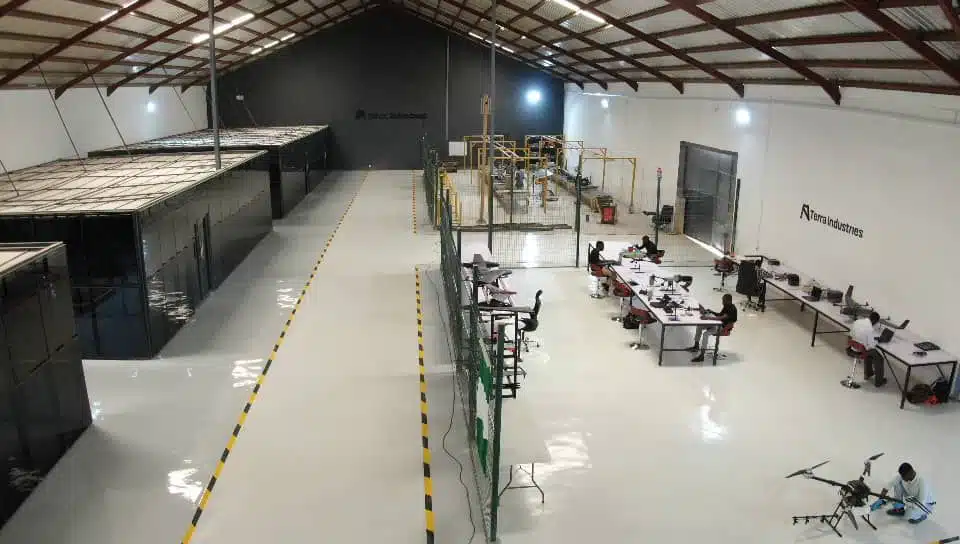The recent decline in startup funding in Africa has coincided with increasing startup shutdowns. In the first half of 2024, African tech startups secured $780 million, marking the lowest amount since late 2020 and a significant 57% decrease compared to the same period in 2023.
This funding shortfall has led to the closure of some notable startups. For instance, 54gene — a Nigerian genomics company — and Sendy — a Kenyan logistics startup — ceased operations, partly due to funding problems.
The reduced funding can be attributed to several factors. One of these is rising global interest rates that have made capital more expensive, leading investors to become more risk-averse, particularly towards early-stage startups in emerging markets like Africa.
Locally, African startups grapple with challenges like unreliable infrastructure, limited access to capital, and regulatory fragmentation, hindering their ability to attract and retain investment.
While these issues persist, they are not the only reasons startups shut down. Internal mismanagement and leadership mistakes have also played a critical role.
For example, Dash, once hailed as a pan-African fintech disruptor, shut down in 2023 after burning through over $86 million in funding without achieving product-market fit.
These were still the reasons for startup shutdowns in Q1 2025. Here are some of the startups that have called it quits this year.
Joovlin
Joovlin, a Nigerian fintech startup founded in 2020 by Kingsley Nwose, Yusuf Olalere, and Lucky Mark, shut down in January 2025 after nearly four years of operations.
The company aimed to empower micro-suppliers and retailers by providing supply chain tools that facilitated online sales and order management.

Victoria Fakiya – Senior Writer
Techpoint Digest
Make your startup impossible to overlook
Discover the proven system to pitch your startup to the media, and finally get noticed.
Joovlin’s platform enabled vendors to take orders across social media platforms, create content, and set up an e-commerce website simultaneously in seconds. It functioned as a complete order management and vendor productivity app.
Despite early traction, including over 2,000 active resellers and more than 6,000 products listed by suppliers, Joovlin faced significant challenges in scaling its user base and generating sufficient revenue to sustain operations.
The startup raised $100,000 in pre-seed funding from MEST Africa in 2020 but struggled to secure additional funding.
The company’s inability to raise further capital, coupled with low revenue, led to the decision to shut down.
Edukoya
Edukoya, a Nigerian edtech startup founded in 2021 by Honey Ogundeyi, shut down its operations in February 2025 after nearly three years in the market.
The company wanted to revolutionise K-12 education in Africa by offering digital educational content and live tutoring sessions.
In December 2021, Edukoya raised a record-breaking $3.5 million in pre-seed funding, marking one of the largest early-stage investments in Africa’s edtech sector at the time.
Despite gaining traction with over 80,000 students, facilitating more than 15 million answered questions, and conducting thousands of daily live classes, the startup struggled to convert this traction into a sustainable business model.
The decision to shut down was attributed to several challenges, including market readiness issues, widespread connectivity problems, limited access to devices, and low disposable income among its target audience.
These factors made mass-market adoption difficult, leading the company to conclude that it was ahead of its time.
After exploring partnerships, mergers, and business model pivots without viable solutions, Edukoya decided to wind down operations and return capital to investors rather than exhaust resources in an unsupportive market.
Bento Africa
Bento Africa, a Nigerian HR and payroll technology startup, temporarily ceased operations in February 2025 following a series of internal and external challenges.
Founded in 2019, the company aimed to streamline payroll processing and benefits management for African businesses.
However, by early 2025, Bento faced mounting allegations of a tax and pension remittance scam, which led to investigations by the Lagos State Inland Revenue Service (LIRS) and the Economic and Financial Crimes Commission (EFCC).
These issues were compounded by internal turmoil, including the resignation of CEO Ebun Okubanjo and the layoff of the entire engineering team after disputes over unpaid salaries.
The issues led the company’s board to announce a temporary shutdown to restore stability and address outstanding obligations.
The shutdown disrupted payroll services for numerous clients, many of whom reported failures in salary disbursements.
Despite efforts to rehire key staff and assure clients of refunds for undelivered services, the company’s future remains uncertain.
Lipa Later
Lipa Later, a Kenyan Buy Now, Pay Later (BNPL) fintech startup founded in 2018, was placed under administration on March 24, 2025, marking a significant downturn for one of East Africa’s most prominent fintech ventures.
The company had previously raised over $15 million in funding, including a $12 million equity round in 2022 and a $3.4 million debt financing in September 2023.
Despite these substantial investments, Lipa Later struggled with mounting debts and failed to secure additional funding in 2024.
The situation was further exacerbated by its acquisition of the struggling e-commerce platform Sky Garden for KES 250 million (approximately $1.9 million) in December 2023, which raised concerns about the company’s financial stability.
The administration process, overseen by Joy Vipinchandra Bhatt of Moore JVB Consulting LLP, involves creditors submitting claims and potentially restructuring or liquidating the company’s assets.
Surprisingly, there’s a positive side to startup shutdowns in Africa’s tech ecosystem. Wilbur Labs, a San Francisco-based startup studio that surveyed 150 startup founders, highlights that understanding the reasons behind failures can lead to more resilient and adaptable business models.
However, the shutdowns also point to the fragile state of Africa’s startup ecosystem. Despite record-breaking rounds and promising traction, many startups find it difficult to weather economic downturns, build sustainable models, or navigate governance hurdles.










